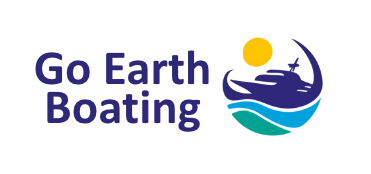Boating at Goodwood Festival of Speed
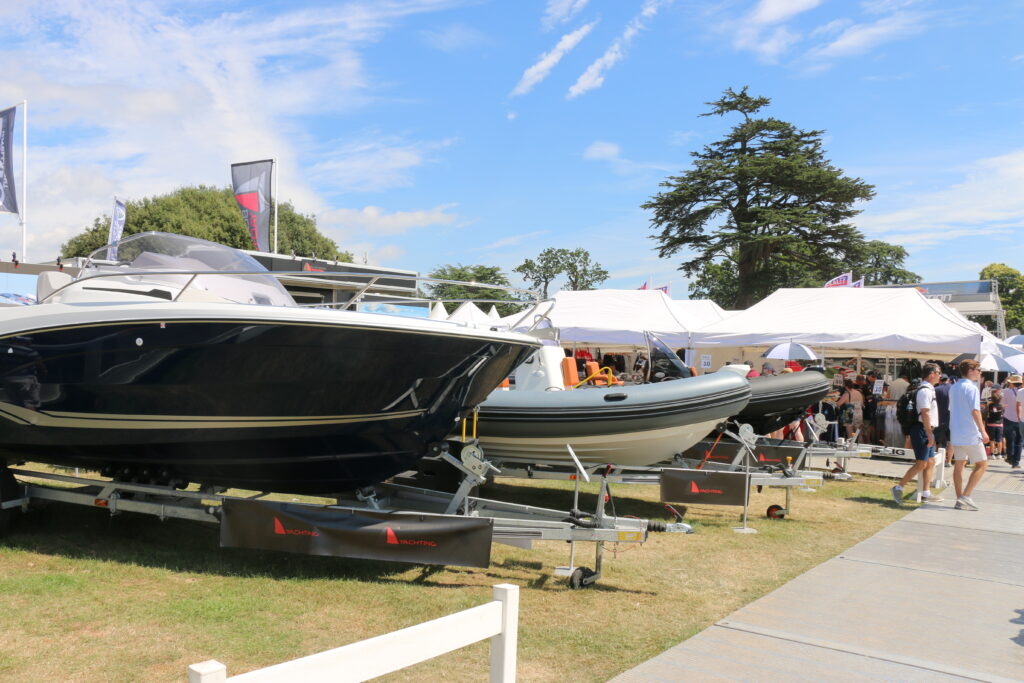
There is no doubt that the boat show scene is changing. The very long-established London Boat Show is sadly no more, and many people are saying that the typical boat show format needs to be developed and updated, and to broaden its appeal. In particular, the traditional boat shows tend to appeal to the same sets of people and follow the same format year after year. In order for the recreational boating industry to develop further, and offer more to a wider set of people (such as you, the reader), then it needs to appeal to a new set of potential boaters. Indeed, unfortunately some of the traditional exhibitors are moving away from the traditional boat shows and not exhibiting any more. The Goodwood Festival of Speed (FoS) is addressing this with its new marine section. More on this later… Goodwood Festival of Speed For those that don’t know the FoS, it is the largest show in the UK, with over 200,000 attendees. Yes – it is about twice as many as Southampton Boat Show. It takes place on the huge estate of the Duke of Richmond, north of Chichester. The show ground is about three times the size of the Southampton Boat Show ground, with plenty of variety and action to interest the visitor. It has truly massive reach across social media, with 28 million video views, and 350,000 visitors to its website during the show. The FoS has been going for 25 years, and is supported by a huge, comprehensive and effective marketing effort. Indeed, the marketing is so effective is that they have to limit the number of tickets; and are sold out before the show. One of the concerns about boat shows is that they are somewhat passive. You go around looking at the trade stalls and the boats; but there is a limit to what activity you can see. Some shows have tried to address this by offering, for example, on the water experiences. The FoS is different – it also has some really spectacular events which are at the core of what it does, such as: Incredible displays by the Red Arrows Fast – really fast (and loud) – displays by the Eurofighter Typhoon Races up the famous hill climb course by historic cars, motorbikes, racing cars and all manner of 2 and 4 wheeled vehicles (although sometimes one wheel and sometimes six!). For just one example, the video of Terry Grant doing the entire hill climb course on two wheels – in his Range Rover – is worth watching. Please don’t try this in your local high street! Stunt bike riding Attended by many very famous names in sport, especially motor sport. Many of these people also have an interest in boating and may even own superyachts themselves. Boating? You may ask where boating comes into this. Up until this year, the FoS has focused on land and air. This year it is extending its reach into boating. It has identified that many of its existing visitors are also very interested in boating. Indeed, Go Earth has successfully exhibited there for the past 3 years for precisely this reason. It is not unusual for FoS to extend its reach. It was several years ago, in 2012, that it added the successful aviation section as an integral part of the FoS – covering both fixed wing and helicopters, as well as aircraft parts and the usual supporting trades. So, the addition of boating is a logical next step. In fact, many of the big names in car manufacturers have an interest in boat development; and there is cross-over between the senior figures in both industries. In 2018, Sunseeker appointed a new CEO who was ex-Aston Martin Lagonda; and the ex-CEO of Sunseeker moved to Lotus cars. A few years ago, Princess Yachts appointed the ex-MD of McLaren as its new CEO. This cross-over between automotive and boating is common and deep. Both industries have similar interests in technology, such as engines, engine management systems, use of exotic materials such as carbon fibre, the use of electronics and the provision of luxury lifestyle products. Even more mundane items, such as cleaning products and oils have applications in both automotive and marine. (Yes, I know that cleaning product and oil technologists will speedily point out that their products are not ‘mundane’!). The boating section will be a dedicated area, complete with a boating advice centre offering free impartial advice to the curious visitor and pointing them in the direction of relevant exhibitors. There will be a select band of exhibitors offering an interesting mix of stands and attractions. This will attract some new people into boating, as well as being of interest to existing boaters. Therefore, it will complement, not compete with, existing boat shows by offering a new and different angle. One notable feature of the FoS is the willingness of people to spend money! One stand, for example, sells classic cars – some costing 6 figures upwards – direct from its stand. By the end of the show typically over half its stock on show has ‘sold’ stickers on. We envisage similar results with boats. Slightly lower down the price bracket, we think that some visitors will want to buy both auto and boating products. Interested in attending? The next festival will take place between 9-12 July 2020. For more information visit the official Festival of Speed website. Interested in exhibiting? We have been contracted by Goodwood as the official Marine Exhibition Agent for the event. Our aim is to showcase the best that the marine industry has to offer and we’d love you to be a part of that. Please contact us for more details at martin.berman@boatsearch.earth
The Boat Buying Process – Getting Expert Advice
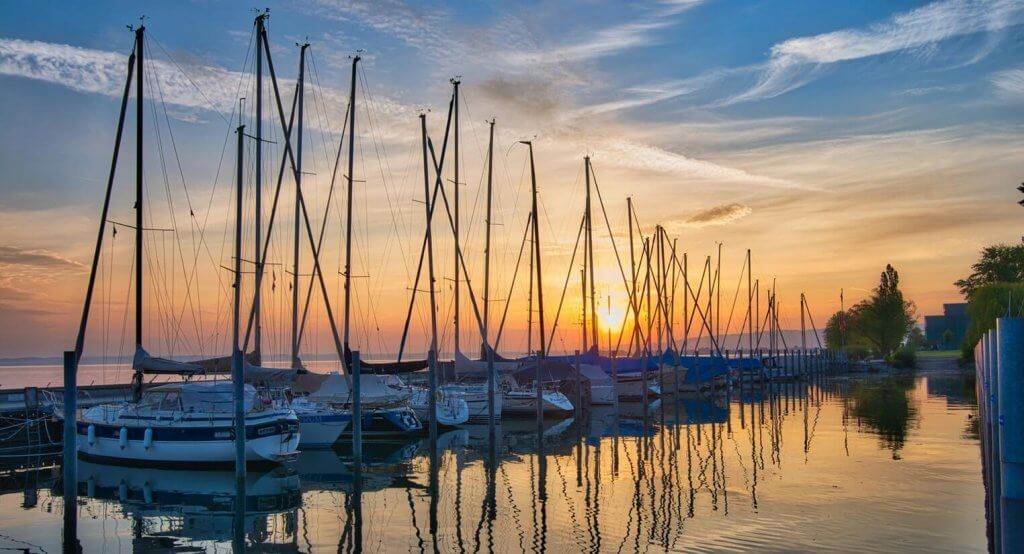
There is no doubt that buying a boat is not a cheap exercise. It is therefore important that you get the best expert, impartial, professional advice available. This article is intended to help you get that advice, covering the full end-to-end process involved in buying your boat- whether it is your first boat or your next one. I already know what I’m doing… Maybe you do. In which case, read no further! Or, just maybe, you can save yourself a lot of time, hassle, risk and money by working with the appropriate professionals. Go Earth can assist you in this, both by providing the necessary expertise and advice, and by finding you other required professionals. However, even if you are an experienced boat buyer, on maybe your third or fourth boat, can you really beat the professionals whose job it is, and who have done this perhaps hundreds of times? In fact, if you have bought boats previously, you will know from experience that you may have made a few, possibly expensive, mistakes that in retrospect you should have avoided. Well, let me assure you – there are plenty more mistakes that can be made! The role of boat brokers There is no doubt that the best boat brokers can be an invaluable source of information. They will have experience and knowledge. Also, if they are members of British Marine, they are expected to abide by the British Marine Code of Conduct. However, there is a big issue for the boat buyer – and it is best to be honest and upfront about it. The job of a boat broker is – obviously – to sell boats, and in particular to sell the boats on their books, or that they have access to. Further, the boat broker is of course under legal contract to the boat seller. Indeed, if you were using a boat broker to sell your boat, you would expect them to act in your interests. None of this is unreasonable or surprising. As a buyer, however, you need independent advice from professionals that will act in your interests – that is the critical point – and that is where the following services can assist you. This is not intended to be critical – merely a statement of the realities. A deal will be made simply when the interests of the buyer and the seller meet; and both parties need someone to represent their respective interests. The boat procurement process In our view, this typically consists of some or all of the following stages: Requirements analysis Boat search The initial viewings Boat negotiation Sea trial and survey Any rectifications needed Boat transport Sourcing other third party services General, independent, consultancy and advice Project management of some or all of the above Let’s briefly look at the first few of these stages: Must have Should have Could have Won’t have (this time) We use our experience and knowledge of the market to help build up the requirements; and give advice on what is sensible and viable within your constraints such as budget. Boat search Once we have some idea of requirements, we can start searching for boats that meet these requirements. I can hear you saying “Anyone can do a search on Google nowadays”. That is partially true – where the ‘partially’ bit is very important indeed. At Go Earth, we have built up our search expertise, using our database of thousands of boat sources (brokers and others) and our bespoke software so that we can do a more thorough, more effective search than any individual can. The outcome of this is that you will get a wider choice of suitable (i.e. meet your requirements) boats. As a result, you should be able to get more cost-effective boats – potentially saving you thousands or tens of thousands or… (insert your own numbers here!) As a result of this, you should be able to draw up a shortlist of boats in which – on paper – you are seriously interested. The next thing is to view them. The initial viewings The sad fact of the matter is that many of the boats that you may visit may not live up to your – reasonable or unreasonable – expectations. There are two ways to handle this. The first way is simply to visit lots of boats until you find one or two that seem suitable. This is perfectly fine if you have the time and inclination, and can travel to the boats. However, if your time would be better spent on other matters – such as running your business – a second option is for Go Earth to do what we call a ‘pre-visit’. We visit the boats for you, whether in the UK or abroad, and report back on them. In this way, you can eliminate those boats that would be a waste of your time. This second option is only worthwhile for boats of a reasonable value and where your time is valuable. Boat negotiations Let’s assume that you have one, two or maybe three boats that you would seriously consider purchasing – if the price is right. You need the most cost-effective purchases. This is where Go Earth’s negotiating service comes into play. With your agreement and authority, we will negotiate the price for you. Price negotiation is an essential part of the process. Brokers do prefer to be able to tie you down to a price as soon as they can. This is not surprising – it’s their job after all. Negotiation can become very emotional, especially considering the sums involved. Go Earth can help take the emotion away, provide a buffer and enable negotiations to be conducted so that you end up with the best viable deal. We also provide the broker with assurance our client is serious about buying – provided the price is right. In this sense, it is a win-win for all. At this stage, any agreed price is of course
Boat Brands and Companies at Goodwood Festival of Speed
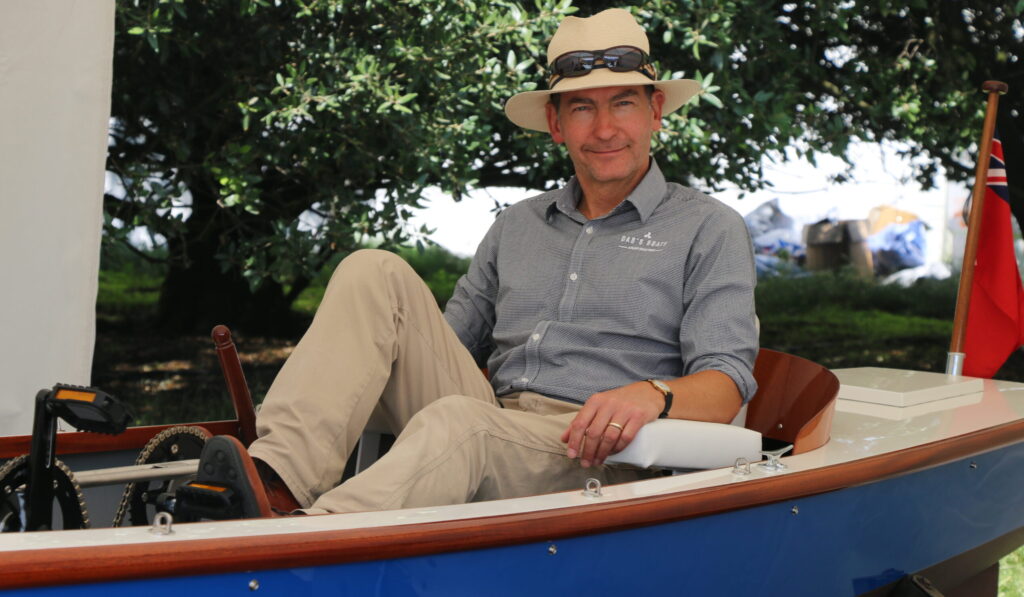
The 2019 Festival of Speed saw an exciting selection of boating companies exhibiting within the brand-new Marine Section. Go Earth Ltd Stand 248 Go Earth offers a variety of services to its clients who are considering buying a recreational boat. These range from an initial, no obligation advice and consultation right the way through the entire process until the client has taken possession of their new pride and joy. We act for the buyer, not the seller. Go Earth are known for their expertise and outstanding service to their clients, helping them procure boats or yachts with the minimum of risk, hassle, time and cost. As regular readers of Boat Trader know, Go Earth also contributes a number of knowledgeable articles each month to Boat Trader (and occasionally to other publications). They cover multiple aspects around buying a boat, and are intended to be genuinely helpful to the boat buyer. As Go Earth has curated a number of boating companies for the festival, they are offering a free advice tent. If you visit their stand (248), they will gladly provide you with a ‘goody bag’ full of useful information from the other boating companies, plus a free copy of Boat Trader. If you have any queries that other boating companies might be able to assist with, then they will helpfully point you in the right direction. Go Earth will also be showing its innovative automatic fender system. This system removes the hassle associated with deploying and storing fenders. Also, there will be some festival only very special deals on Indespension trailers – offering a significant discount. These trailers cover everything from boats to cars (including covered trailers) to motorbikes, and even livestock! Bates Wharf Stand 410 Bates Wharf are a very well-established family business based in London & the South Coast. They can offer a superb range of new and used boats from these prestigious recommended boat manufacturers: Fairline Chris-Craft Bayliner Brig Beneteau Sessa SACS RAND They offer a personal service, whether you’re buying your first boat or upgrading to your next one. Bates Wharf will provide a day to remember at the festival and welcome you to their boat showrooms. Bates Wharf pride themselves on their high level of customer service and with four established offices in Chertsey, Eastbourne, Poole & Southampton, which are all open seven days a week, you can view the boat of your choice every day! They look forward to meeting you at the festival. At the show they expect to be exhibiting Chris-Craft Launch 27 and Bayliner E5. Please feel free to come along and talk boats. Mercury Stand 403 The biggest and latest Mercury outboard engines will be showcased for the first time at this year’s Goodwood Festival of Speed, including the Mercury Racing Verado 400R and the new V8 platform released last year. Visitors to the Mercury stand will have the chance to get up close to the latest RIBs and tenders from boat builders such as Pascoe International and Axopar and benefit from expert technical advice; either from boat builders or the Mercury UK team. For more information, please see our additional article in Boat Trader magazine. Multihull World Stand 256 Multihull World is an international Yacht brokerage specialising in catamaran and trimaran sales, repairs, maintenance and training and was established over 30 years ago. MHW act on behalf of multihull owners seeking to sell their vessels and on behalf of buyers looking to enjoy the benefits of catamaran and trimaran sailing. The wide range of designs available, enormous variations in design criteria and specific features of each vessel make our experienced staff a highly valued asset in selecting the right boat for each buyer sailing agenda. They are all experienced, passionate multihull owners, each with over 20 years experience. This allows us to provide all the benefits of a professional brokerage service with an exceptional pool of knowledge on these sailing yachts. We sell new and pre-owned vessels, acting as sole new boat UK agents for Outreme and Rapier performance catamarans (both designs have won their respective classes in international yacht races) and Broadblue and Gemini cruising catamarans, designs which prioritise crew comfort and security above all else, together with Corsair trimarans, suppliers of fast and energetic performance trimarans. Each marque is outstanding in its own field. The Broadblue range is the only production catamaran still manufactured by a British Company – if you prefer to buy British then look no further!! We are all excited to introduce visitors at the Goodwood Festival of Speed to these high performance and luxurious sailing yachts. Boat Club Trafalger Stand 276 One of the most important things in life is making memories with family and friends, Boat Club Trafalgar helps you make that happen. Boat Club Trafalgar offers you Hassle Free, Unlimited Boating, for a simple monthly fee and as a member you have the choice of using a large range of premium boats anywhere within the Solent. You have all the fun of boating without the costs and responsibilities of being a boat owner. With our varied pool of boats we’ve got boats that will meet your needs for any occasion. Our dedicated team will take care of cleaning, maintenance, servicing, storage and insurance leaving you free to spend all your leisure time out on the water with no worries. Boat Club Trafalgar is convenient, just book online and once you arrive you simply get on board and drive away, it’s that simple, all you pay for is your fuel. We provide all the training and support that you need. Come and visit us on stand 276 to find out how you can enjoy boating, without the cost of owning at the same time have a coffee and find out more about our amazing one-off Goodwood Festival of Speed special offer! Dads’s Boats Stand 306 Introducing The Pedal Boat. A unique design, 50 years in the making, which allows two people to face each other and both pedal forwards in comfort.
An Interview with Boat Trader
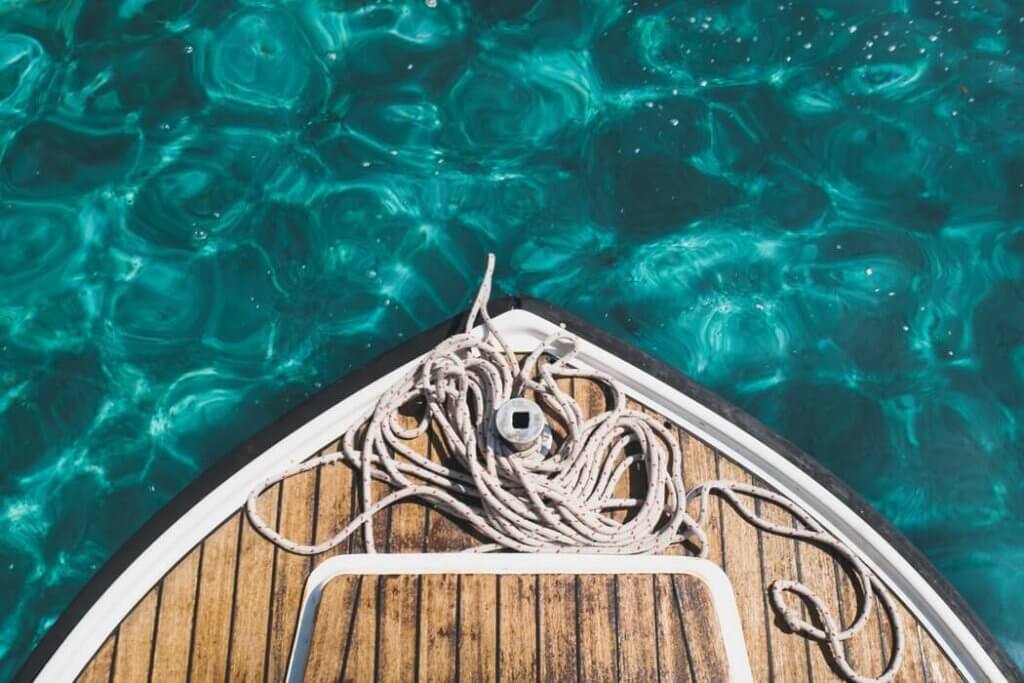
The leisure marine industry has many different companies in many sectors selling a wide variety of goods and services to boaters and potential boaters. In this special interview, we talk to Boat Trader and explain why ‘Go Earth does it differently’. Something different Boat Trader: Martin, can you tell us a bit about why you started Go Earth Martin: There are two main elements to this; a link with the water and wanting to do something different – some ‘thinking outside the box’ – if you will forgive the cliché! Firstly, we have had a link to the water in one form or another for many years. We been boaters ourselves for over two decades, and I have been a scuba diver for four decades. Our daughter and son-in-law are both qualified PADI scuba diver instructors. I am also a dinghy sailor – or at least attempting to be! So, we got to know the vast variety of companies in the broad leisure marine industry. Next we decided to form a company – with something to do with boating. Initially we were not sure what exactly was wanted. One thing we were sure of – we did not want to do the same as everybody else. In a nutshell, we wanted to do something different that would ‘add value’ to the boating community. Boat Trader: What do you mean by ‘something different’? The art, craft and science of boat buying Martin: Frankly, at first we were not sure. So, we indulged in (cliché alert!!) some out of the box, blue-sky thinking. (Well, I did warn you about the clichés!) What we eventually realised was that we needed to do things that were of genuine value to boaters, which were not currently being done, and which we could deliver successfully. We did not want to be just another chandlery or another boat sales company or another training school. One thing that we kept on hearing was of people who were not quite sure what they wanted when they were buying a boat and how to go through the whole process. Brokers help, of course. However, they have to act for the seller, not the buyer. Therefore, a key element of our business is helping people with buying a boat, acting on behalf of the buyer, not the seller. Boat Trader: How do you do this? Martin: By becoming experts in boat buying. The concept is simple enough. Most people only buy one, two or three boats in their lifetime. They simply do not do it often enough to know all the things that should be considered when buying a boat. We go through the process time and time again with multiple clients, multiple brokers and multiple types of boats. As a company, we aim to be the expert ‘port of call’ (another cliché ?) for boat buyers. Requirements analysis Boat Trader: Is that all there is to it? Martin: No, not quite! As well as expertise, you need processes, tools and data to support the activity. As an example of a process, for our boat search, we typically spend some time with the client developing a ‘Requirements Analysis’. We talk to the client, find out what they are looking for, offer advice, and iteratively develop and improve the requirements analysis. This does require a bit of time and work up front; but – very importantly – it helps ensure that the client ends up with a boat that really does suit them and their needs. Note that this is the polar opposite of ‘Oh –I have just seen a nice boat – let’s buy it’. We start with the client, not the boat! Boat Trader: So the first step is the requirements analysis. What do you mean by iteratively? Martin: Sometimes, the client is not quite sure what they want. So – in our enhanced service – we might for example develop a requirements analysis, then do a boat search. After getting our written report, the client will think about it, might develop their thinking further, and might realise that they need something slightly different, or simply change their mind about some aspects of their requirements, or have a change in the budget they are willing to spend. We then (at absolutely no extra charge) change the requirements analysis and re-run the search for them. Boat Trader: What if they change their mind again? Martin: No problem. With the enhanced search, we will run the requirements analysis / boat search a third time, again at absolutely no extra charge. The important thing for us is that the client should not be locked into their initial thoughts. We want them to end up with a boat that really does suit their needs. Software tools Boat Trader: Earlier on, you mentioned that you used some ‘tools’ in your work. Martin: One of the tools that we use is some software that we developed in house. It holds an enormous database of brokers and others – UK and global – covering a vast range of budgets, boat types, locations and so on. During a boat search, we can input some key parameters from the requirements analysis and use that to query the database to identify the brokers that are likely to have boats that match the requirements. This database also includes, for example, user forums that sell boats, brokers who don’t advertise on the internet, some private sources, some not-so-well-known auction sites and so on. If you are searching for a superyacht, then you clearly need to focus on those brokers, not ones selling, say, narrowboats or river boats. The software helps us to this effectively and efficiently. Data Boat Trader: What about the ‘data’ bit? Martin: Easy – We accumulate masses of data inside our software. We use that
